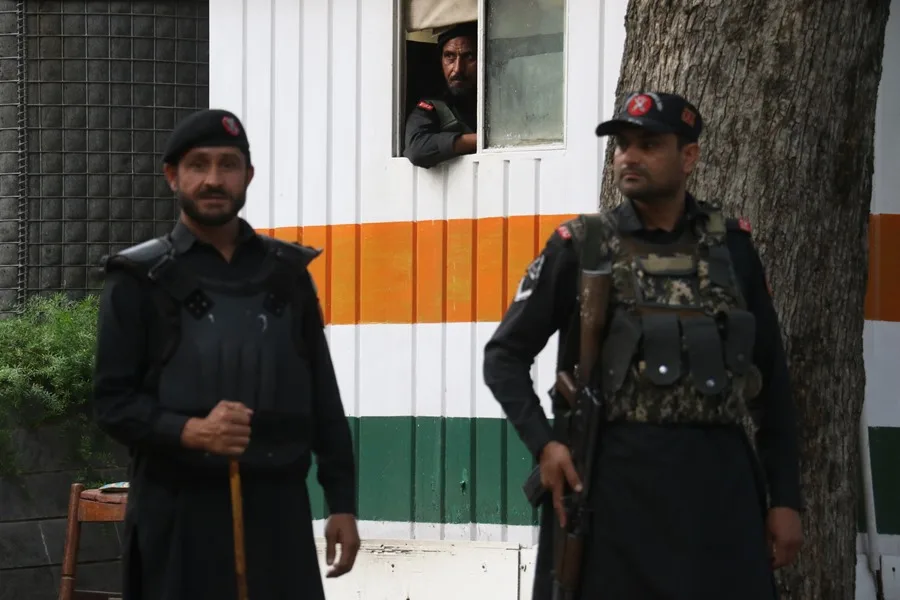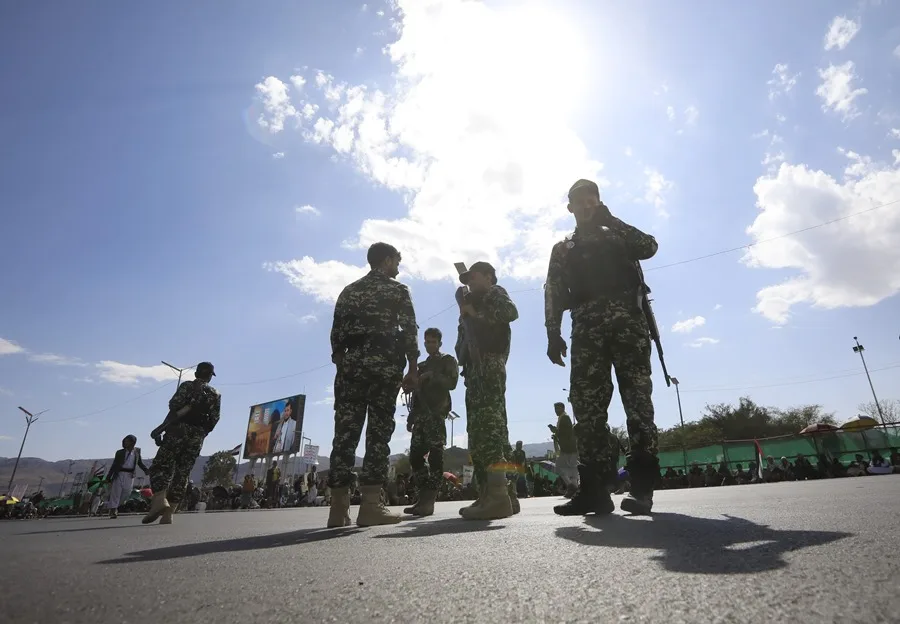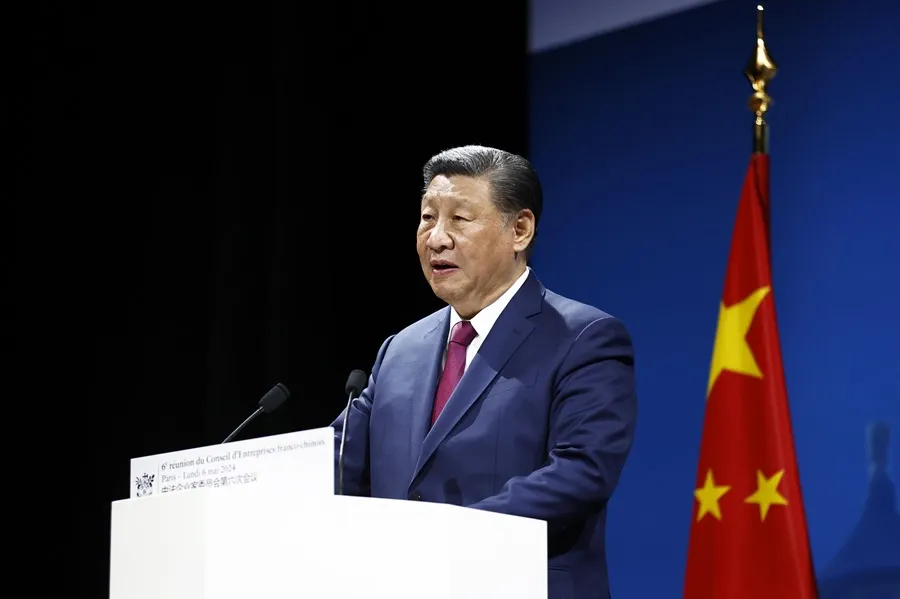Sin categoría
The pope overcomes the hard test of his longest trip

Pope Francis concluded what was supposed to be a tough test in his pontificate: the longest international trip, 12 days in which he has traveled four countries – Indonesia, Papua New Guinea, East Timor and Singapore – and in which despite his 87 years and his mobility problems he overcame without problems in good shape and without showing signs of weakness.
A pope to whom the trip seems to have not made a dent
The trip in which he has traveled 32,000 kilometers, added to those he made by car and mobile among the faithful, the four schedule changes and seven flights, do not seem to have made a dent in the pontiff who said goodbye to Singapore on Friday with a visit to a home for the elderly and a meeting with the young people in which he showed good humor again.
It is true that with respect to other trips, the pace of the events has been slowed down and he has been allowed to rest from one country to another with some free hours on arrival.
But the Argentine pontiff, who due to his knee pain has to move in a wheelchair, has not given up anything, including the strenuous tours in papamóvil of more than 40 minutes among the faithful in the massive masses that he has celebrated and also fighting with the heat and humidity of these countries.
For more than 40 minutes he was touring the huge esplanade ed Taci Tolu in Dili with intense humidity and heat despite the fact that the sunset was waiting to greet the faithful at the end of the mass in which about 600,000 people gathered, practically almost half of the population of East Timor.
Francisco “regenerates” with the affection of people
“The pope regenerates the affection of the people. All these people were not expected in their path as has been seen in countries like East Timor and that gives it strength,” explains one of the people from the Vatican delegation.
And he tells the pope’s great satisfaction for having been able to go to Vánimo, a remote town in Papua New Guinea, after having traveled another two hours by plane, to visit the Argentine missionaries who work there among the poorest of one of the poorest countries in the world.
Francisco has been seen shaking thousands of hands from the long lines that formed after his actions to be able to greet him without losing patience, stop the car on numerous occasions to bless the babies that his parents had taken to the sides of the road to see him just spend a moment and always approach the sick for a caress.
And distribute candies among the children, one by one, who showed off with songs, dances and playing their instruments during their acts, although always in their wheelchairs.
Francisco, with Asia in his heart
Francis, a great lover of Asia, following in the footsteps of the Jesuits to whom he belongs, has also wanted to demonstrate that this Continent is hope for the Catholic Church, which loses faithful in secularized Europe while in Latin America the evangelist churches make their way.
East Timor is considered the most Catholic country in the world – not counting the Vatican, with 95% of the population and so he showed it by taking to the streets the two and a half days that the visit lasted.
Even in Singapore, a multi-religious country, where around 43% of its more than five million inhabitants are Buddhists, about 20% are Christians, 14% Muslims, the Catholic Church currently has 176,000 faithful but it is the only one that grows every year, they say.
International
India asks to identify Pakistani citizens in the country to ensure their departure before Sunday

The Indian government asked regional executives on Friday to identify all Pakistani citizens in their territories to ensure that they leave India once the deadline granted by the authorities to leave expires on April 27.
This measure was transmitted today to the heads of government of the different Indian states by the Minister of the Interior, Amit Shah, according to official sources cited by several media in the country.
Pakistani citizens must leave the country before April 27, following the order issued yesterday by the Indian Government, in which it indicated that all visas issued to nationals of the neighboring country will be revoked from that moment on.
He only made an exception with medical visa holders, to whom he granted until April 29 to leave India.
The order has increased transit at the only land crossing between India and Pakistan, known as the Attari-Wagah border, to where Pakistani citizens have traveled today to leave the country.
The suspension of visas is part of a series of measures ordered last Wednesday by New Delhi, in response to the terrorist attack perpetrated the day earlier in Indian-run Kashmir, in which 26 people died.
The Indian government said it had indications that the attackers had the support of Pakistan, which New Delhi accuses of sponsoring the insurgency in Kashmir, which has caused a serious diplomatic crisis between the two nations.
In response to India’s measures, Pakistan suspended some visas for Indians and closed its side of the border – in reciprocity with New Delhi. It also closed its airspace to Indian airlines and announced the suspension of all bilateral agreements with India.
International
At least nine injured, including two children, in new US bombings in Yemen

At least nine people, including two children, were injured this Wednesday in a new wave of bombings carried out by the United States against at least four cities in Yemen under the control of the Houthi rebels, reported media affiliated with the Iranian-backed Shiite movement.
Al Masirah, spokesman for the Houthis, reported that at least “seven women and two children were injured in the US attack” in the Al Thawra district of Sana, the capital of Yemen controlled by the insurgents since 2014.
According to the chain, the bombings also targeted “the surroundings of the city of Saada”, north of the capital; the northern town of Hazm, in the governorship of Al Jawf; and a district of the city of Al Bayda, in the center of the country.
At least two missiles hit the capital’s neighborhood of Al Jeraf, on the road that leads to Saná airport, according to EFE.
Large columns of smoke and a large fire could be observed from different points of the city, while ambulance teams and firefighters went to the scene of the attack, which according to witnesses was aimed at a deposit.
Al Masirah added that one of the attacks hit “a celebration hall under construction in a residential neighborhood in the Al Thawra district” and, in Al Jawf, destroyed a farm and killed several head of cattle.
This new wave of bombings came minutes after US President Donald Trump warned that Iran must completely and immediately cease its support for the Houthis, not just reduce it, and threatened the latter that they will be “completely annihilated” if the attacks against Israel and the Red Sea do not cease.
The Republican leader estimated on his social network, Truth Social, that “tremendous damage” has already been inflicted on the Houthis and stressed that “the situation will progressively worsen.”
At the weekend, the United States began a series of airstrikes against different cities controlled by the Houthis in northern and central Yemen, as well as in the capital, Saná, bombings that resulted in more than fifty deaths.
International
China celebrates the call between Trump and Putin and affirms that dialogue is the “only way out” of the war in Ukraine

China said on Thursday that the dialogue is “the only way out” to the war in Ukraine and held the talks held on Wednesday by US President Donald Trump and Russia President Vladimir Putin, who agreed to start “negotiations immediately” to end the conflict.
“Russia and the United States are influential powers and we welcome them strengthening the dialogue. Regarding Ukraine, dialogue is the only way out of the crisis. From the beginning, Chinese President Xi Jinping has advocated for peace talks,” Foreign Ministry spokesman Guo Jiakun said at a press conference.
The spokesman added that China “will continue to make efforts” for peace and that it will play “a constructive role” to end the European conflict.
He also reiterated that China supports “any effort that leads to peace” and emphasized that the Asian country hopes to “maintain communication with all parties” for this purpose.
The possibility of Russia and Ukraine starting peace negotiations for the first time in almost three years of war multiplies after that call between Trump and Putin, to which we must add the one made by the American with the Ukrainian president, Volodymyr Zelensky.
This Friday, the US Vice President, J.D. Vance, will meet on the margins of the Munich Security Conference, which will be attended by China’s Foreign Minister, Wang Yi.
Since the beginning of the war in Ukraine, China has maintained an ambiguous position from which it has called for respect for “the territorial integrity of all countries”, including Ukraine, and attention to the “legitimate concerns of all countries”, in reference to Russia.
Beijing has opposed “unilateral” sanctions against Moscow and advocated for “a de-escalation and a political solution”. However, the West has accused China of supporting the Russian military campaign, something it has always denied, and of supplying Putin with key components he needs to produce weapons.
In addition, European countries have repeatedly asked Chinese leader Xi Jinping to use his influence on Putin to end the conflict, but the Asian country has given priority to strengthening its relations with Russia, a country from which it imports oil and gas at a lower cost.
China has limited itself to presenting peace initiatives that have had a lukewarm reception in the West, such as the plan it presented last year together with Brazil that did not include the withdrawal of Russian troops and that was rejected by Kiev.
-

 Central America5 days ago
Central America5 days agoCardinal Rodríguez to Attend Funeral of Pope Francis: “He Was Very Dear to Me”
-

 Central America5 days ago
Central America5 days agoNicaragua’s Ortega and Murillo Mourn Pope Francis, Acknowledge ‘Difficult’ Relationship
-

 International5 days ago
International5 days agoDominican Republic Declares Three Days of Mourning for Pope Francis
-

 International5 days ago
International5 days agoDHS Secretary Kristi Noem’s Purse Stolen in D.C. Restaurant Heist
-

 International4 days ago
International4 days agoPope Francis and Trump, a relationship of disagreements marked by migration
-

 International3 days ago
International3 days agoFrom the transfer of the coffin to the funeral, three days to say goodbye to Pope Francis
-

 International4 days ago
International4 days agoWithin Francis’ private wake: respect and prayer for the deceased pope
-

 International5 days ago
International5 days agoPope Francis: The Quiet Architect Behind the U.S.-Cuba Thaw
-

 International4 days ago
International4 days agoTrump’s emissary will visit Russia this week for consultations on the arrangement in Ukraine
-

 International3 days ago
International3 days agoA very heterogeneous and divided conclave will elect the new pope
-

 International3 days ago
International3 days agoModi returns to India and shortens his visit to Saudi Arabia after a deadly attack in Kashmir
-

 International4 days ago
International4 days agoCardinal Becciu’s enigma: will he enter the conclave?
-

 International4 days ago
International4 days agoThe pope last called the Gaza parish on Saturday and asked about the children
-

 International4 days ago
International4 days agoA candidate for the Supreme Court denounces an unequal dispute in the judicial election of Mexico
-

 International4 days ago
International4 days agoAmerican universities and colleges sign a letter against Trump’s policy
-

 International4 days ago
International4 days agoThe Government of Colombia presents twelve questions that it will propose in a popular consultation to promote its reforms
-

 International16 hours ago
International16 hours ago“A dignified life” for migrants, the plea in Panama in memory of Pope Francis
-

 International4 days ago
International4 days agoBurma’s military junta extends ceasefire until April 30 due to the earthquake
-

 International3 days ago
International3 days agoEl Salvador formalizes the proposal for the exchange of Venezuelan deportees, according to Bukele
-

 International3 days ago
International3 days agoThe Peruvian Public Ministry denounces the former attorney general for an alleged corruption case
-

 International4 days ago
International4 days agoRoyal quinoa, the superfood that grows in front of the largest salt flat in the world in Bolivia
-

 International1 day ago
International1 day agoThe Pope’s funeral procession through the center of Rome worries the Italian authorities
-

 International1 day ago
International1 day agoThe Arab League supports Hamas handing over control of Gaza and weapons to the Palestinian Authority
-

 International4 days ago
International4 days agoInternational leaders begin to confirm their presence at Pope Francis’ funeral
-

 International3 days ago
International3 days agoMaradona’s house arrest is again a focus of tension in the trial for his death
-

 International3 days ago
International3 days agoA judge orders the Trump Government to restore Voice of America services
-

 International3 days ago
International3 days agoDonald Trump will visit Saudi Arabia, Qatar and the United Arab Emirates in mid-May
-

 International4 days ago
International4 days agoChurch charges ceased or resigned in the papacy of Francis for cases of pedophilia
-

 International16 hours ago
International16 hours agoA Russian general dies in the explosion of a car bomb near Moscow
-

 International3 days ago
International3 days agoThe president of the World Bank underlines his intention to lift his veto on nuclear energy
-

 International1 day ago
International1 day agoMigrants want to stay on Mexico’s southern border because of Sheinbaum’s industrial plan
-

 International1 day ago
International1 day agoA group of the poor and a delegation of migrants will participate in the funeral and burial of the pope on Saturday
-

 International1 day ago
International1 day agoThe pope’s doctor reveals his last moments of life and that he wanted to “die at home”
-

 International3 days ago
International3 days agoMarco Rubio reorganizes the State Department to eliminate offices and jobs
-

 International16 hours ago
International16 hours agoA magnitude 6 earthquake shakes the province of Esmeraldas in Ecuador, bordering Colombia
-

 International3 days ago
International3 days agoThe Brazilian Supreme Court opens trial against six others accused of leading the coup attempt
-

 International1 day ago
International1 day agoFrom email to marriage: the day Pope Francis married a Uruguayan couple
-

 International16 hours ago
International16 hours agoPope Francis’ funeral procession will be a six-kilometer journey through the heart of Rome
-

 International3 days ago
International3 days agoA judge in the United States stops the deportation to El Salvador of a hundred Venezuelans
-

 International16 hours ago
International16 hours agoPutin and Witkoff address possible direct negotiations between Russia and Ukraine
















